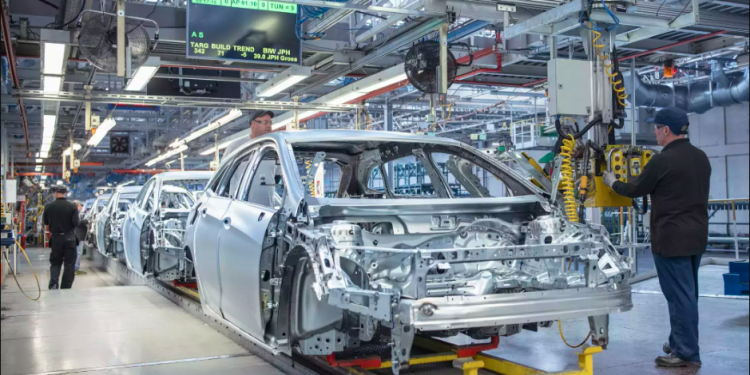In a bid to transform its automotive landscape, Bangladesh has been grappling with the dominance of used Japanese cars since the 1980s. The country, known for its reliance on reliable models like Toyota, is now at a crossroads, exploring ways to encourage domestic production and reduce dependence on imported second-hand vehicles.
The South Korean Perspective
Park Young-sik, the South Korean ambassador to Bangladesh, emphasizes the need for Bangladesh to pivot towards domestic production, urging a departure from the prevalent reliance on reconditioned second-hand cars.
During a visit to the Fair Technology-Hyundai factory, he emphasized that domestically made cars would boost the local industry and contribute to environmental well-being.
Persisting Dependence on Used Japanese Cars
The enduring dependence on used Japanese cars, particularly Toyota, traces back to the 1980s. These vehicles, celebrated for their performance and the availability of spare parts, have dominated the roads of Bangladesh.
Local mechanics find them easier to repair, contributing to their widespread popularity. However, this dependence was not solely a market-driven choice but a result of government policies that incentivized the import of reconditioned vehicles.
Challenges and Changing Dynamics
Despite the popularity of Japanese cars, challenges loom large. The government’s policies, aimed at phasing out the import of old vehicles, have increased prices.
The restriction on importing cars older than five years has escalated costs, making old Japanese cars, in some cases, pricier than brand-new alternatives. This shift in dynamics, influenced by tax changes and market forces, has sparked a conversation about the future of the automotive industry in Bangladesh.
Government’s Push for Local Industry
Bangladesh introduced the Automobile Industry Development Policy in 2021 to counter the dependency on used cars. The policy aims to stimulate local automobile industry growth, fostering consumer affordability.
The government is encouraging foreign and local companies to establish semi-knocked-down (SKD) and completely knocked-down (CKD) plants, promoting the assembly of vehicles within the country.
The Need for Significant Investments
While the push for local production is evident, substantial investments are required to set up these assembly plants. Industry leaders emphasize the need for significant financial commitments, citing examples like China’s substantial investment in Mirsarai to manufacture electric vehicles.
The potential reduction in dependence on imported cars is seen as a positive outcome if major players, including Japanese companies, invest significantly.
Importers’ Concerns and Fair Competition
Importers of used Japanese cars express concerns about potential monopolies arising from establishing automobile assembly plants. They advocate for fair competition and argue that creating a completely built unit (CBU) factory would be more advantageous.
Former President of Bangladesh Reconditioned Vehicles Importers and Dealers Association, Abdul Haque, emphasizes the importance of considering market potential and conducting feasibility studies before implementing significant changes.
Transport Expert’s Perspective
Transport expert Professor Shamsul Hoque acknowledges the popularity of used Japanese cars but emphasizes the importance of reducing dependence. While these vehicles are reliable and durable, Professor Hoque suggests focusing on maintenance habits and fuel quality.
He supports the idea of building a robust automobile sector in Bangladesh, not only for economic growth but also for building a positive global brand image.
Towards a Thriving Automotive Future
As Bangladesh grapples with these challenges and strives for a thriving automotive future, the balance between consumer preferences, government policies, and industry investments will play a pivotal role in shaping the road ahead.




